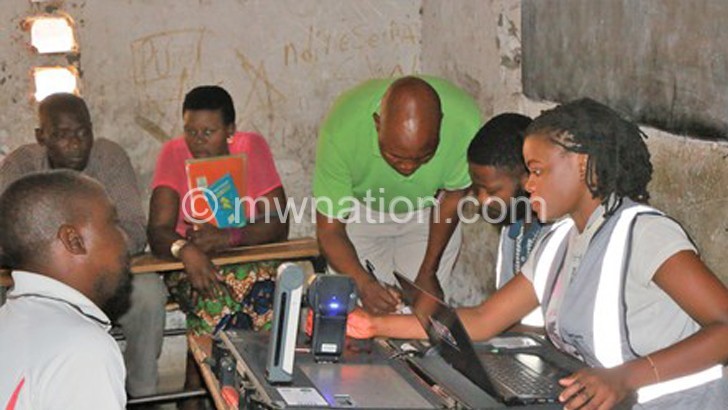MEC, PAC say Malawi should learn from Zimbabwe polls
The Malawi Electoral Commission (MEC) and Public Affairs Committee (PAC) have warned that unless political parties commit themselves to ending violence, the 2019 Tripartite Elections will not be credible, free and fair.
MEC chief elections officer Sam Alfandika and PAC chairperson the Reverend Felix Chingota made the remarks in separate interviews in reaction to the recent Zimbabwe elections which took Zanu-PF’s President Emmerson Mnangagwa about a month to be inaugurated.

Zimbabwe electoral laws provide for the president to be inaugurated 24 hours after the validation of results. But his rival Nelson Chamisa of Movement for Democratic Change (MDC) contested the results in court, a development that led to the suspension of the inauguration ceremony to pave way for dispute resolution.
In a telephone interview on Monday, Alfandika argued that Malawi has different electoral laws from those of Zimbabwe, although there has been an attempt to introduce the 50+1 system for electing presidents and the time-frame for inauguration of the president after announcing results.
He said: “Election dispute resolution is governed by electoral laws and the Constitution of the land. What Zimbabwe has done is what the law requires them to do. There are two issues: first they went to court and the court determined the results.”
On lessons MEC has learnt from Zimbabwe, Alfandika said political parties need to manage their electorate well so that the 2019 Tripartite Elections should not culminate into violence because of misunderstandings that may ensue due to the current political terrain where violence is becoming common.
He said: “ We have seen violence perpetuated by political parties. We recently saw UTM[United Transformation Movement] vehicles torched. Political party leaders should not allow violence if we are to have fair and free elections next year.”
In his further comments, Alfandika said that since 1999 MEC has been under pressure each time the country goes to polls to announce results as early as possible despite a number of grievances raised by other political parties in the process.
On his part, Chingota, who hailed the sound electoral laws that halted Mnangagwa’s inauguration, said Malawi too had the chance to use similar laws as they were tabled in Parliament last year only to be shot down by MPs.
He said: “In December last year, we had the Electoral Reforms Bills that could have dealt with issues exactly like those that happened in Zimbabwe. The law requires that after elections there should be almost 30 days before the swearing in ceremony.
“The reform Bill was actually formulated to prevent incidences that happened in 2014 because the Commission found it difficult to announce results because of a number of reports on irregularities that were coming in.”
Chingota said to avoid what happened in 2014, political parties should be realistic in their campaigns and that they should not be deceived by numbers of people patronising their rallies.
He added: “We are urging all political leaders that when campaigning, they should focus on issues so that when people go to vote they should do so based on the issues.”
Commenting on the sentiments, main opposition Malawi Congress Party (MCP) publicity secretary the Reverend Maurice Munthali said there is need to have a policy on settlement of electoral grievances.
He said: “In any meaningful democracy, we need to give room to electoral grievances and concerns. That will smoothen the road for the winner as everybody will have aired their views, leaving no question as to who is the legitimate leader since the process will have been looked at legally and politically.”
Munthali said the lesson to be drawn from Zimbabwe is that people’s will should always be respected, and that Malawi should look at electoral procedures such as the Electoral Reforms Bills which guide voting, announcing of results and inauguration of the president.





